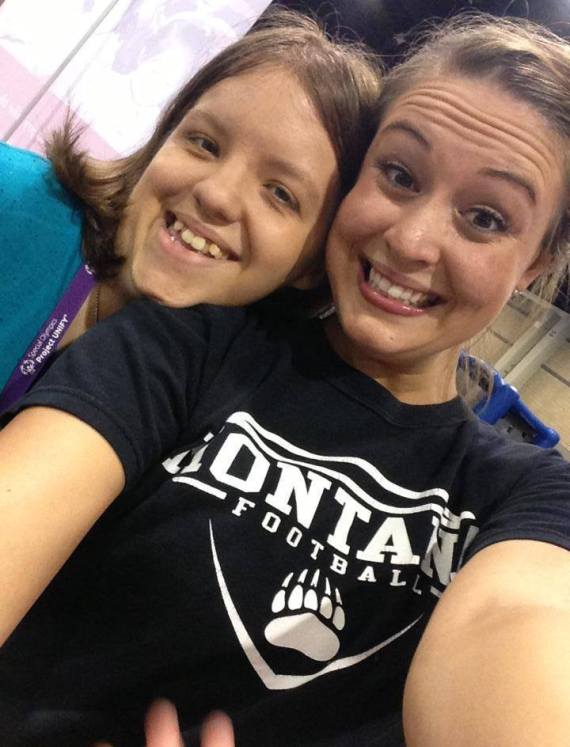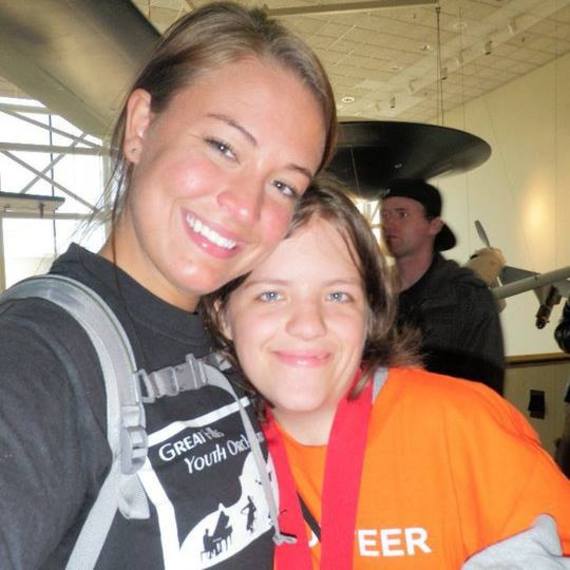We have all experienced it -- being laughed at, left out and insulted. We know what it feels like to experience the negativity that haunts the high school halls. But just think now about being a student with an intellectual disability and knowing those feelings and experiences can be even more intense and hurtful.

In our high school, much like others, the special education classroom was not near general education classrooms. It was tucked away in an area that most students didn't even know existed. Other than at lunch, and the occasional physical education class together, special education students didn't have much opportunity to interact with their general education peers. There was a sense of unknown with relation to the special education students and that caused problems. The students with intellectual disabilities were often the targets of hurtful jokes, pranks, and, worst of all, were referred to as "retards" -- the most painful word.
Sadly, everyone knew this was how things worked in our school; it was almost expected for students to act and treat each other this way, despite the desire of all students to just "fit in" and be viewed as "normal." But Tanealya and I had a different idea -- what if it wasn't that way. What if students with intellectual disabilities were treated just like other students?
We decided to take a stand to make our school a more inclusive and welcoming place. To do so, we believed our school needed to stop using the R-word. Our first attempt at ending the "R-word" was a small attempt to share our message. We offered free t-shirts to the first 100 people to pledge not to use the R-word. Within the first hour, all the t-shirts were gone and we thought we were on to something. Unfortunately, after the free shirts were gone our pledge seemed to slow down -- free t-shirts seemed to be a larger motivator then a commitment to eliminate hateful language.
Despite the limited respond, we tried again. The next year, we decided we needed to focus less on ending the word the specific word and more on educating our community about the negative connotation attached to the word and the hurt it causes. After months of planning, we took over downtown and rallied for respect were everyone could see us. Cars honked, people stopped and the crowd chanted; not after long the news stations showed up, and then the newspaper; it was like something you would see in a movie. We had hundreds of community members rally beside us to take the pledge.
That was just the beginning for our community. It signified a shift in our culture -- a willingness to see others as people first.
But it didn't stop there. Tanealya and I were fueled by the passion of our community. We knew this was our opportunity to make students with intellectual disabilities a more connected part of our school community.
With the help of other Special Olympics athletes and student athletes from our school, we drafted a plan for Special Olympics athletes to be recognized by our school's athletic department and earn a varsity letter from their high school, just like "traditional" athletes of the same age.
After a year of hard work and dedication, our plan was finally approved! The following year, our high school gave the first varsity letters to students with intellectual disabilities for their work as athletes within Special Olympics. In the same year, our student body selected an individual with intellectual disabilities as homecoming king -- not because people felt bad for him, but because students saw him for the smart, funny, kind person that he is.
Tanealya and I have since graduated from high school, but we recently went back to visit. When we walked into the common area, it was like we were in a different school. There were lots of students hanging out together; students with and without intellectual disabilities together as one student body.
It only took a little determination, passion and acceptance to change the face of our school. Dignity of all students isn't something that has to be taught and preached anymore, it's the new norm. We don't have to dream about the "what if's" anymore, because the "what if's" are now reality. Our school is full of student who are scholars, athletes, popular and "normal" -- they are students with and without intellectual disabilities, and the word "retard" is never uttered throughout the halls.
This post is part of a series produced by The Huffington Post and the Special Olympics in conjunction with Spread the Word to End the Word awareness day onWednesday, March 4. To find out more about the Spread the Word campaign, please visit the website. Join us in taking the pledge at R-Word.org. After you pledge #Respect at r-word.org, carry the torch for respect in Special Olympics' #UnifiedRelay. Learn more here. Read all posts in the series here.
